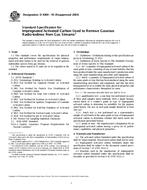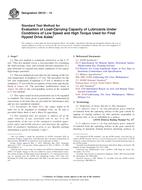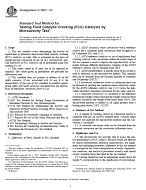1.1 This practice provides guidance on performing charged-particle irradiations of metals and alloys. It is generally confined to studies of microstructural and microchemical changes carried out with ions of low-penetrating power that come to rest in the specimen. Density changes can be measured directly and changes in other properties can be inferred. This information can be used to estimate similar changes that would result from neutron irradiation. More generally, this information is of value in deducing the fundamental mechanisms of radiation damage for a wide range of materials and irradiation conditions.
1.2 The word simulation is used here in a broad sense to imply an approximation of the relevant neutron irradiation environment. The degree of conformity can range from poor to nearly exact. The intent is to produce a correspondence between one or more aspects of the neutron and charged particle irradiations such that fundamental relationships are established between irradiation or material parameters and the material response.
1.3 The practice appears as follows:
| Section | |
| Apparatus | 4 |
| Specimen Preparation | 5-10 |
| Irradiation Techniques (including Helium Injection) | 11-12 |
| Damage Calculations | 13 |
| Postirradiation Examination | 14-16 |
| Reporting of Results | 17 |
| Correlation and Interpretation | 18-22 |
1.4 This standard does not purport to address all of the safety concerns, if any, associated with its use. It is the responsibility of the user of this standard to establish appropriate safety and health practices and determine the applicability of regulatory limitations prior to use.
Product Details
- Published:
- 01/01/2003
- Number of Pages:
- 20
- File Size:
- 1 file , 210 KB


